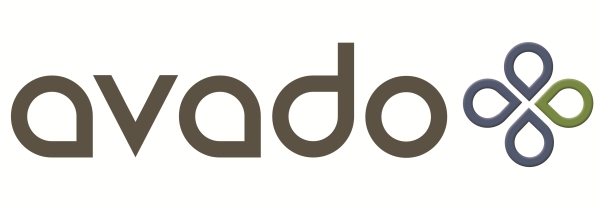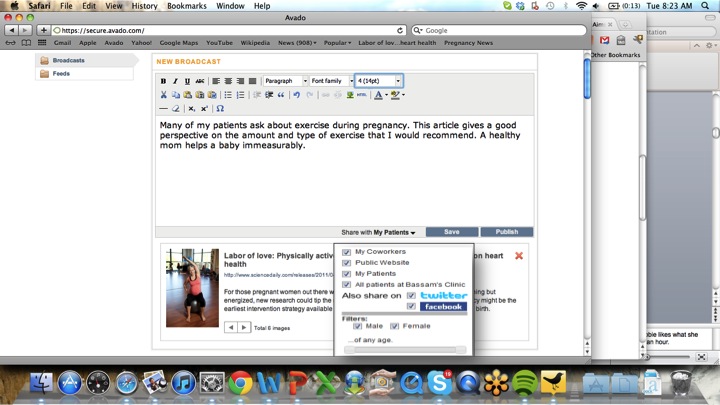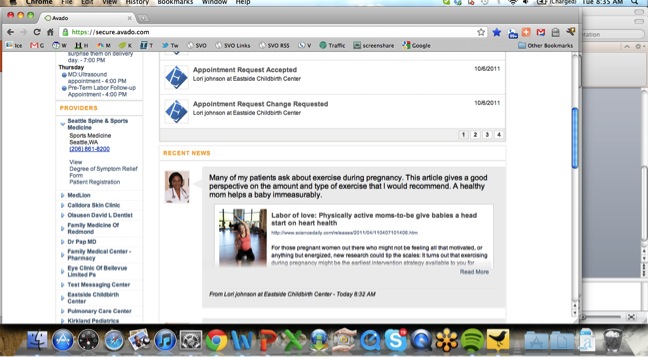Back in May, Avado was chosen as a finalist at TechCrunch Disrupt in NYC. The startup’s ambition was, said in reductive terms, to become the Salesforce.com of personal health records. (You can read our initial coverage here.) In other words, like Salesforce’s “customer relationship management” (CRM), Avado is building a “patient relationship management” (PRM) platform in an attempt to create a more fluid and communicative relationship between patients and doctors — by way of connected health records.
The future of medical practice, Avado CEO Dave Chase says, is very clear: “It’s about being accountable and patient-centric”. The old model for care providers was do more and bill more, but today those who pay for health care, from private insurance and government to consumers themselves want to pay when their health goals are achieved — today it’s about patient satisfaction. Thus, core to Avado’s value proposition is that, through richer and more frequent communication, patients are far more likely to stay healthy and actualize the steps set forth in a care regimen prescribed by doctors.
Since Disrupt, Avado has been working on building out that robust (and freemium-modeled) communication platform for care providers and their patients, and, today, Avado is officially coming out of beta to launch its service to the public. With this full-scale launch comes a number of free products that make up the basis of its freemium platform, all of which are geared towards facilitating that more active communication. For starters, Avado is launching a secure, HIPAA compliant messaging service that patients and healthcare providers can use to safely communicate without violating HIPAA.
Avado’s platform will also include a broadcast publishing engine, that Chase likens to Yammer, in that it functions as a tool that allows healthcare providers to publish content to a targeted group, like fellow staffers, or more broadly, to their public website or Twitter and Facebook, for example. The practice can also choose to publish to groups of patients, like female patients over 18 years old, or those with Diabetes, and so on.
What’s more, with its “Live and Interactive in 55” program, Avado will provide practices with an interactive website that includes secure messaging, a private social network, and patient portal that can be up and running within 55 minutes of sign up. Chase said that, with no cost and minimal time involved for practices, these healthcare providers no longer have an excuse to offer an abysmal website and user experience. With a workable website and electronic medical records, practices will already be well on their way to becoming more patient-centric, interactive, and, well, modern.
Avado will enable practices to claim their accounts in Avado’s namespace, where, Chase says, there will only be one “drjohnson.avado.com”, for example, and unlike domain names on the web, Avado won’t allow squatters, and namespaces need to be kept active, or it will be released back into the wild.
While the above are free features Avado clients will be able to take advantage of for free, the startup will be charging $100 per month per clinician.
As to how Avado is working for businesses, Dr. Samir Qamar, the founder and CEO of Medlion, a group of doctors in Silicon Valley providing cheap primary care to uninsured and insured patients alike, says that the company has been in the process of licensing its model to doctors all over the country.
But, to do so, it needed a software platform that combined the tools of an insurance-based practice (like the generation of ICD-9 codes for creation of super bills) with those of a direct primary care practice (a system that allows for secure patient-to-practice interaction). Qamar also said that they wanted a system that implemented scheduling and electronic medical charting to save on overhead and everything in between.
For businesses like Medlion and Organic Medicine Now (two of the startup’s early customers), Avado offers a pretty handy solution. For practices, having the ability to customize a cloud-based software package around their specific criteria is huge — it’s a big time and money saver, and therein lies Avado’s value proposition.
Aggregating data including past and future appointements, lab results, immunizations, surgeries, etc., along with allowing you the consumer to enter your own data, manually or by way of health gadgets? Pretty cool.
For more on Avado, check them out at home here. Dave Chase, Avado’s CEO, is a former a 12-year employee at Microsoft, where he played a key role in founding Microsoft’s healthcare business. He then went on to act as a senior consultant at Accenture’s Healthcare Practice, working with more than two dozen healthcare providers and systems. Chase has become a spokesman for best practices for healthtech companies, and you can read his guest contributions to TechCrunch here, where he describes both Avado and the problems facing the healthcare industry in more depth.


